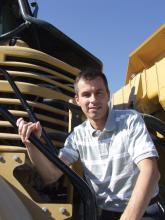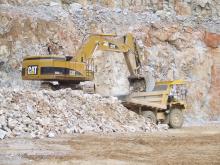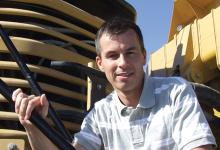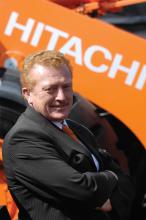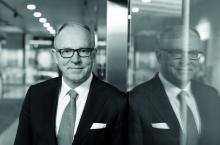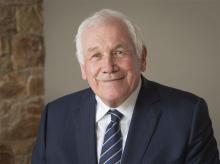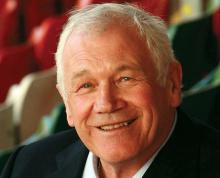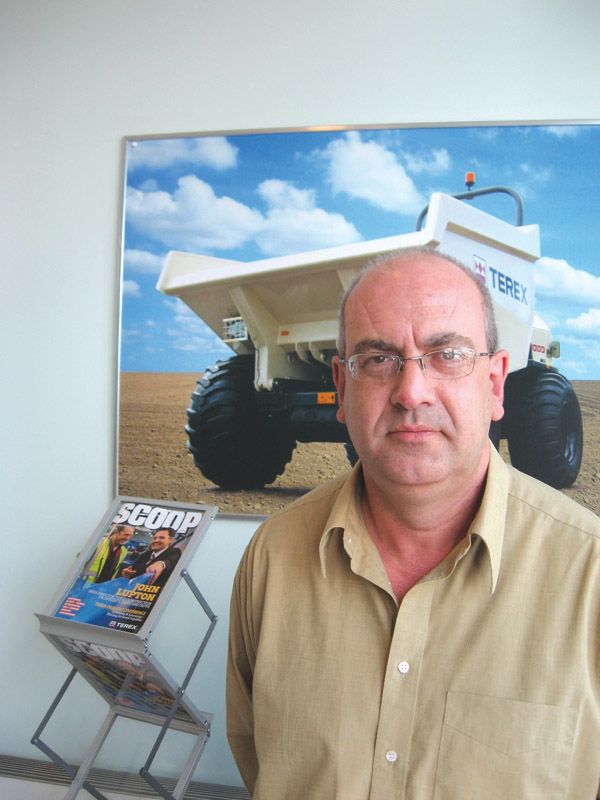
Terex Distribution Limited's recently appointed mining and quarrying manager has seen many changes over the last three decades. He talks to Patrick Smith about some of them, and the challenges ahead
Malcolm Judd is sitting in his office at the factory that manufactures some of
The parallel is probably irrelevant, but his job with the company now involves selling some of the largest machines the company produces.
Large or small, such equipment has been Judd's bread and butter for more than 30 years since, as a youngster, he joined the engineering firm of H Leverton in Spalding, County Lincolnshire in the east of England. [In 1997, Unilever-owned Leverton, the former
At Leverton's Judd started off "using a spanner" on various types of machinery as an apprentice, a thorough training that lasted four years and included block release courses in engineering at Gateshead Technical College in north-east England.
Fast forward more than three decades and Judd is now an acknowledged expert on mining and quarrying equipment. Since the start of 2008 he has been Terex Distribution Limited's mining and quarrying manager, based at the company's Coventry facility (central England) that produces a range of compact products including backhoe loaders, site dumpers and compaction rollers.
On his appointment, the company said his role will focus on providing optimum service to a number of named national accounts in the mining and quarrying industries.
And this is exactly what attracted Judd to the job because each time he talks about equipment he talks about customers and his interest in making sure they get what they want, and perhaps more importantly, what they require to do their jobs.
"I have seen a lot of changes in my 33 years in the business," said Judd, who prior to joining Terex was national plant manager for Tarmac, a job at which he saw things from the buying side of the industry rather than the sales side.
"The biggest changes? Health and safety has undergone huge change since I started as an apprentice in 1975; the machines have changed out of all recognition, and the environment is, of course, now a major issue.
"We are in a dangerous business. We operate big machines and we need to take proper steps to make sure everyone goes home safely at the end of their shifts." Apart from a short time with Ackerman excavators (now
"As part of my role at Leverton's I got to know the major quarrying companies such as
After leaving Tarmac, he joined
"This was how I got the insight into what the machines were doing, how they worked and what the customers expected of them.
"After this I returned to Tarmac as regional plant manager and then as national plant manager. This was an interesting job. I was included in the procurement and disposal of machines and service-related issues, and latterly I joined the Tarmac project Trident team. This focused on efficiencies within its quarries.
"The team would go into a quarry and I would go and support them on the mobile equipment to make sure they had the right size of machines; the right amount of equipment, and to try to get the best performances out of the equipment which was from all the major manufacturers. We also used best practice of operating to reduce fuel consumption and to make sure things ran efficiently. For example, I was heavily involved with tyres. They are vital, and there are still problems with supplies, so making sure knowing what and when to order is essential," said Judd.
He will bring this experience to his new role, which involves incorporating the sales as well as the overview of the RM contracts, and he is also keen to see that all aspects of the customer's needs are met.
His sales area includes rigid trucks and articulated dump trucks that are manufactured in Motherwell, Scotland, together with the Terex O&K excavators and face shovels from Dortmund in Germany.
These include high production equipment such as the TR100 mining truck, with a 91tonne payload, and the huge face shovel/backhoe Terex(r) O&K RH 120-E which weighs in at 285tonnes and has a 15m³ bucket.
This equipment is a far cry from that of the 1970s when the emphasis was on rods and levers and "now they are almost fly by wire." Judd said: "Order books are very healthy at the moment as they are for all mining companies. On the mining side of things at the moment Europe is on the up, particularly with the increased value of coal and aggregates. I look after open cast coal and quarries.
"There is such a demand for heavy mining equipment that we almost can't build it quickly enough. Sometimes customers have the need for a machine and we need to be able to work with customers to meet their requirements. I think it extremely important working with customers to try to plan ahead. This is the only way they can make sure they have everything they need." Judd pointed out that due to the specialised nature of the products, the lead time for big mining and quarrying equipment is long.
"You can't just get an engine off the shelf that easily these days, and there are also other components to consider. Quite often the machines are made to specification with lots of additions.
"We need to be a major player in the wheel loaders market but, and I emphasise this, we must have the right product. We will be up against the best in the business and when we put the Terex(r) brand on it, the product must also be the best." Returning to the present, he said he is keen to see the quarry and mining business expand, but said that one of the biggest challenges in the industry, along with health and safety and the environment, will be getting the resources such as coal and aggregates out of the ground.
"Getting planning permission and the public acceptance in order to remove coal, sand, gravel and aggregates for use on construction such as roads will be more difficult, but the materials have to come from somewhere. People don't want mines and quarries in their backyards.
"Some companies are doing lots of work with noise and dust suppression to ease this situation, and the equipment companies such as Terex produces will also help.
"In this way we are all working to make the processes involved more acceptable to the public.
"Quarry companies are aware that they have to have that public acceptance to continue working: if not they will just get closed down," said Judd.
"It is vital that we keep the machines belonging to our customers operational as downtime can be costly. We also need to assist with reducing fuel costs. We can work with our customers and help to reduce bills by, for example, looking at ways of reducing the number of trips equipment has to make in mines and quarries and designing haul roads to better suit the machines. All this helps.
"I imagine that in another 10-15 years there will be many more changes in mining and quarrying, and in the equipment that operates in them. This will include alternative power sources."

